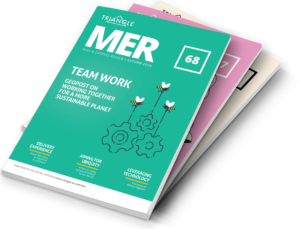
SingPost and BNI offer new remittance service to Indonesia at post offices island-wide
Singapore Post Limited (SingPost) and PT Bank Negara Indonesia (Persero) Tbk (BNI) announced that they will offer a new remittance service to Indonesia at 51 designated SingPost branches (post offices).
CASHOME is a fast, convenient, yet secure remittance service that allows the sender to remit money into a recipient’s bank account maintained with BNI in Indonesia. A fast remittance transfer time is in store for customers as funds remitted by the sender through the post office before 3pm will be received by the recipient on the same day.
Funds remitted after 3pm will be received by the recipient on the next business day. The money will be credited directly to the recipient’s bank account maintained by BNI.
Customers can use their NETS card or cash to remit funds to their recipients who can access the funds at BNI’s wide network of over 970 branches and close to 20,000 ATMs across Indonesia. They will also enjoy the convenience of using the CASHOME card for the initial and subsequent transactions. A CASHOME card is an identification card for customers to use to remit money to their recipient, saving them the hassle of filling out forms each time they need to remit money. A one-time registration of the CASHOME card is required only.
As SingPost is committed to safeguarding customers’ personal information and privacy,
customers can enjoy peace of mind in knowing that their funds are in safe hands when they remit money with Singapore’s public postal licensee.
Singapore Post Limited (SingPost) and PT Bank Negara Indonesia (Persero) Tbk (BNI) announced today that they will offer a new remittance service to Indonesia at 51 designated SingPost branches (post offices).
CASHOME is a fast, convenient, yet secure remittance service that allows the sender to remit money into a recipient’s bank account maintained with BNI in Indonesia. A fast remittance transfer time is in store for customers as funds remitted by the sender through the post office before 3pm will be received by the recipient on the same day.
Funds remitted after 3pm will be received by the recipient on the next business day. The money will be credited directly to the recipient’s bank account maintained by BNI.
Customers can use their NETS card or cash to remit funds to their recipients who can access the funds at BNI’s wide network of over 970 branches and close to 20,000 ATMs across Indonesia. They will also enjoy the convenience of using the CASHOME card for the initial and subsequent transactions. A CASHOME card is an identification card for customers to use to remit money to their recipient, saving them the hassle of filling out forms each time they need to remit money. A one-time registration of the CASHOME card is required only.
As SingPost is committed to safeguarding customers’ personal information and privacy,
customers can enjoy peace of mind in knowing that their funds are in safe hands when they remit money with Singapore’s public postal licensee.
SingPost’s Executive Vice President for Retail & Financial Services, Mr Loh Choo Beng, said: “We are pleased to partner BNI to offer yet another value-added service to our customers who will get to enjoy the best of both worlds – SingPost’s wide retail network of post offices and BNI’s extensive branches and ATMs in Indonesia. This is another option to remit money to Indonesia.
We are confident that customers will enjoy CASHOME’s fast, convenient and secure way to remit money back to their loved ones.” According to National Agency for the Placement and Protection of Overseas Labour (BNP2TKI) , there are currently 306,354 Indonesians working in Singapore. The data also shows that Indonesian immigrant workers globally sent approximately USD 2.7 billion to Indonesia each year, with funds remitted from Singapore contributing 3 pct to this amount.
BNI’s President Director, Mr Sigit Pramono said: “BNI has already engaged in similar cooperation with banks and remittance agencies in Malaysia, Brunei, Hongkong, Taiwan and many Middle East countries. All have been successful in bringing mutual benefit to both parties.”













